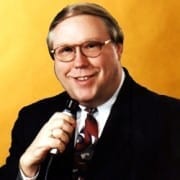The Three Keys to Employee and Company Fulfillment
Who wouldn’t like to be more fulfilled? If you’re not feeling totally fulfilled, you’re not alone. Even if you are fulfilled, the odds are that many of your managers and employees are not, according to new study conducted by Metrus Institute. In fact, few Millennials and only some Gen Xers describe their lives as fulfilled.
In the study, life fulfillment is defined as achieving one’s dreams and creating a lifestyle that brings exceptional happiness and inner peace. The good news is that you can control a good deal of this, and even more importantly, you can positively influence the fulfillment, productivity and retention of people in your organization. Bottom line, there are three big factors that drive fulfillment: actions aligned with vision; the right capabilities and engagement or passion.
Aligned Vision
First, do your employees see a vision and a sense of purpose for your organization, and most importantly, is it synced with their own vision and values? Fulfilled people not only have a purpose or vision of the future, but it is also aligned with their job and employer. They have a clear sense of where they are headed (or would like to head) in life, and how their current job fits into that broader framework. Unfulfilled people struggle with misalignment between who they are and what they do every day. People who are not aligned with your organization’s purpose or vision are either biding their time or actually working at cross-purposes.
Most people I have coached can actually articulate such a vision when they take a little time out of busy, programmed lives to think about it. Goals could include discovering the next great drug, having a large loving family, becoming a vice president, achieving financial security, having great friendships, finding a life partner, and yes, even becoming a CEO. When those goals are aligned with the organization, we see higher productivity and business results.
Leaders do themselves a disservice when they don’t understand people’s personal vision and values and how they jibe with the company’s vision and core values or culture. When the two are highly aligned, we see that spark where employees are rowing hard in the same direction to execute the business strategies quickly and effectively. When that happens, you don’t need a lot of rules because people make judgments that are in sync with what the business needs and how the business operates to get there.
In hiring talent at any level, especially senior managers and executives, this ‘fit’ is critical. When fit is low, it is like a rowing team in which every person in rowing at a different pace or even in a different direction. A good test of this is to ask about priorities. In survey research that we do at the Metrus Institute, one of the telling questions is how people view different priorities. Highly aligned organizations execute their strategies rapidly, with little waste, while others look like they are rowing in gelatin.
Capabilities
The second key ingredient is Capabilities. It asks the question, who are you and what do you need to succeed? What are your skills, experiences, knowledge and abilities? And, are those capabilities sufficient to succeed in your current and desired roles? While it is great having life goals, without the building blocks, they are unlikely to be achieved. Former Secretary of State Condoleezza Rice had skills and interests in both piano and political science. Despite an ability that allowed her, later in life, to play on stage with Yo-Yo Ma at a televised event in Washington, she realized early on that she could not make a career as a virtuoso pianist. But she could be a virtuoso political figure. She had all the building blocks for that with the right education, credentials and experience.
Amazingly, one of the paradoxes of the corporate world is that mature organizations often choke off the capabilities needed to succeed. Today, the most important resource for most organizations is the right talent to get the job done. And yet over four-fifths of CEOs I talk to decry their talent pipeline—they don’t have the people in place for succession or critical backup for key roles.
Talent fit is also important. Here is where fulfillment becomes important. People who are being asked to learn new skills or knowledge in areas that are not very interesting to them or don’t fit into their life or career plan will find excuses to avoid the training or not absorb it in a meaningful way. It you are not a technology geek, picture being asked to sit in a software class. You could do it if you were being pushed to do it, but you wouldn’t love it or retain much. The same holds for great leadership skills. People who accept promotions to managers primarily for pay or position, but not because they like bringing out the best in people, usually fail in the long run. They need to be good leaders that others will follow, not just because they have a title.
Engagement
The third component of fulfillment is Engagement. Have you ever met a successful person who didn’t seem to be totally absorbed in what he or she does? All of the highly fulfilled people that I researched had a passion for their mission and purpose in life, along with the actions needed to get there. They loved what they did and continuously learned from it.
What doesn’t work is having a dream, but not enjoying the journey. I interviewed a Millennial who said he wanted to be rich and that he could have taken a job on Wall Street. I asked why he didn’t and he said he didn’t want to work 90 hours a week. He was still looking (unsuccessfully) for other ways to “get rich”. Malcolm Gladwell in his book Outliers quotes the research of Anders Ericsson that shows that many of the champions we admire have become successful through hours and hours of practice – 10,000 in fact. That’s a lot of time invested in something if you don’t enjoy it. It’s hard to picture tennis great Roger Federer or Olympian gold medalist Michael Phelps being successful if they didn’t enjoy tennis or swimming and were just doing it to be famous.
Optimizing Your Talent Investments
One of the continuing gaps for most companies is strong people optimization skills—obtaining the most benefit from the investments in finding and developing people and their talent. In tests we do of leadership, fewer than 20% of leaders have highly aligned, capable and engaged employees, resulting in not only sub-par performance, but often poorer quality, lower customer satisfaction and higher turnover. And, this finding occurs in nearly every organization. The best managers hire people with goals and values that are aligned with the organization, help them develop skills that are in sync with both career and organizational needs, and bringing out the passion in their people. Keep in mind that most new talent in your organization is 100% engaged on the day they are hired, but if you are like most businesses, engagement drops significantly in the first two years, often sooner. Managers who cannot optimize the people investments they are given need to be retooled or replaced.
Here are a couple of things you can do to find out if your people are being fulfilled and as a result performing at their best in your organization:
- Conduct a survey or audit of all of your managerial units on alignment, capabilities and engagement. Engagement alone is not enough if people’s priorities, values and capabilities are not aligned.
- Do a quick check survey or pulse across your organization to see how many people understand the 2-4 key business priorities or imperative. You may be shocked at gaps in this understanding, even at very senior levels.
- Invest in hiring the right people—those capable of being aligned and engaged in your culture in addition to having the right skills. It is better to wait longer to hire someone who meets these criteria than to spend your life correcting misfits.
Now go optimize your talent — it’s the engine that drives strategy execution. And don’t forget about your own fulfillment!
About the Author

, scheduled to be released October 1, 2016. For more information follow Dr. Schiemann on Twitter, @wschiemann and connect with him on LinkedIn at www.linkedin.com/in/wmschiemann.












Leave a Reply
Want to join the discussion?Feel free to contribute!